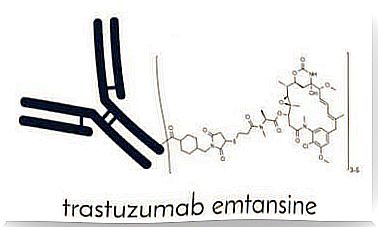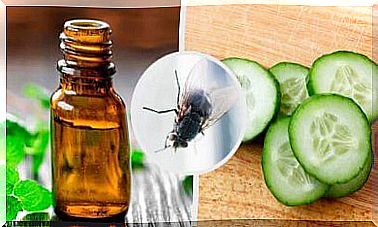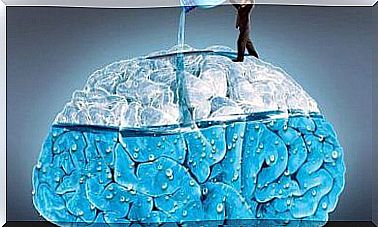Benefits Of Breastfeeding For The Newborn’s Immune System

Breastfeeding is one of the healthiest ways to feed your baby. Numerous studies have shown that breast milk meets a baby’s nutritional needs during the first months of life. Breastfeeding is also closely related to a baby’s resistance. In this article, we will discuss the benefits of breastfeeding for the newborn’s immune system.
Breast milk guarantees the proper development and growth of the baby. It may even have a decisive effect on the body’s defense mechanisms in later life, thus being an essential factor for good health.
Colostrum composition and breast milk
Breast milk not only contains macro- and micronutrients, but also contains immunoglobulins that are transferred to the baby during breastfeeding.
Breastfeeding in the first months of a baby’s life significantly reduces the risk of developing allergies and autoimmune problems, in part due to these immunoglobulins. These findings emerge from a study in Annals of Nutrition & Metabolism.

Immediately after delivery, the milk secreted from the breasts, colostrum, is rich in these bioactive compounds with their beneficial properties. And not only is it rich in the elements already mentioned, but it also contains high-quality cytokines and polyunsaturated fatty acids.
The benefits of breastfeeding for the newborn’s immune system
The World Health Organization recommends exclusively breastfeeding for the first six months of a baby’s life because it has been shown to benefit the baby’s immune system, among other things.
Breast-feeding may reduce the risk of autoimmune diseases
As already mentioned, colostrum and breast milk may reduce the incidence of autoimmune problems such as allergies, which is supported by several studies.
Giving breast milk to a baby for at least the first year may reduce the risk of later onset of diseases related to a malfunctioning defense system.
Benefits of breastfeeding for the newborn’s immune system: lower risk of infectious diseases
In addition, breast-feeding may reduce the risk of dying from pneumonia in the early stages of life, as shown by a study by Minerva Pediatrica.
Breastfeeding increases the likelihood of a baby surviving and protects against a number of chronic and multifactorial diseases in the medium term.

Optimal development of the immune system of premature infants
One of the most significant problems for premature babies is that many of their body systems are not optimally developed at birth. This can compromise the physiological function of their body, causing deficiencies that affect their health.
In these cases, breastfeeding is even more important. According to an article in the Clinics in Perinatology, breast milk may boost the immune system in premature babies, which in turn reduces the risk of developing autoimmune problems in the short term.
At what age is breastfeeding recommended?
This is a very controversial issue. Experts say mothers should breastfeed their babies for at least the first year of life to get the most out of it.
While it is true that solid foods can be started after six months, breastfeeding should be continued for another six months.
Some experts recommend continuing breastfeeding for even longer. However, this is not always possible, mainly due to the discomfort associated with the sensitivity or pain of the mother’s breasts.
It is important to note that when breast milk is replaced by infant formula, special attention should be paid to its composition. Many substitutes are rich in simple sugars, which is detrimental to babies. In addition, it is important to ensure that your baby is getting enough unsaturated fatty acids.
Breastfeeding promotes the development of the immune system
Breastfeeding is key to the proper maturation of the newborn immune system. It significantly reduces the risk of allergies and asthma, as well as other diseases associated with autoimmune problems.
On the other hand, it also increases the likelihood of survival and reduces the baby’s risk of developing severe pneumonia.
In addition, it is important to note that breast milk is the most complete nutrition for babies. It contains the highest quality protein, unsaturated fatty acids and all the vitamins that the human body needs for the efficient functioning of its physiological processes.
It is true that there are differing views on the cessation of breast milk. However, almost all experts agree that it should not be done before the baby’s first age.









